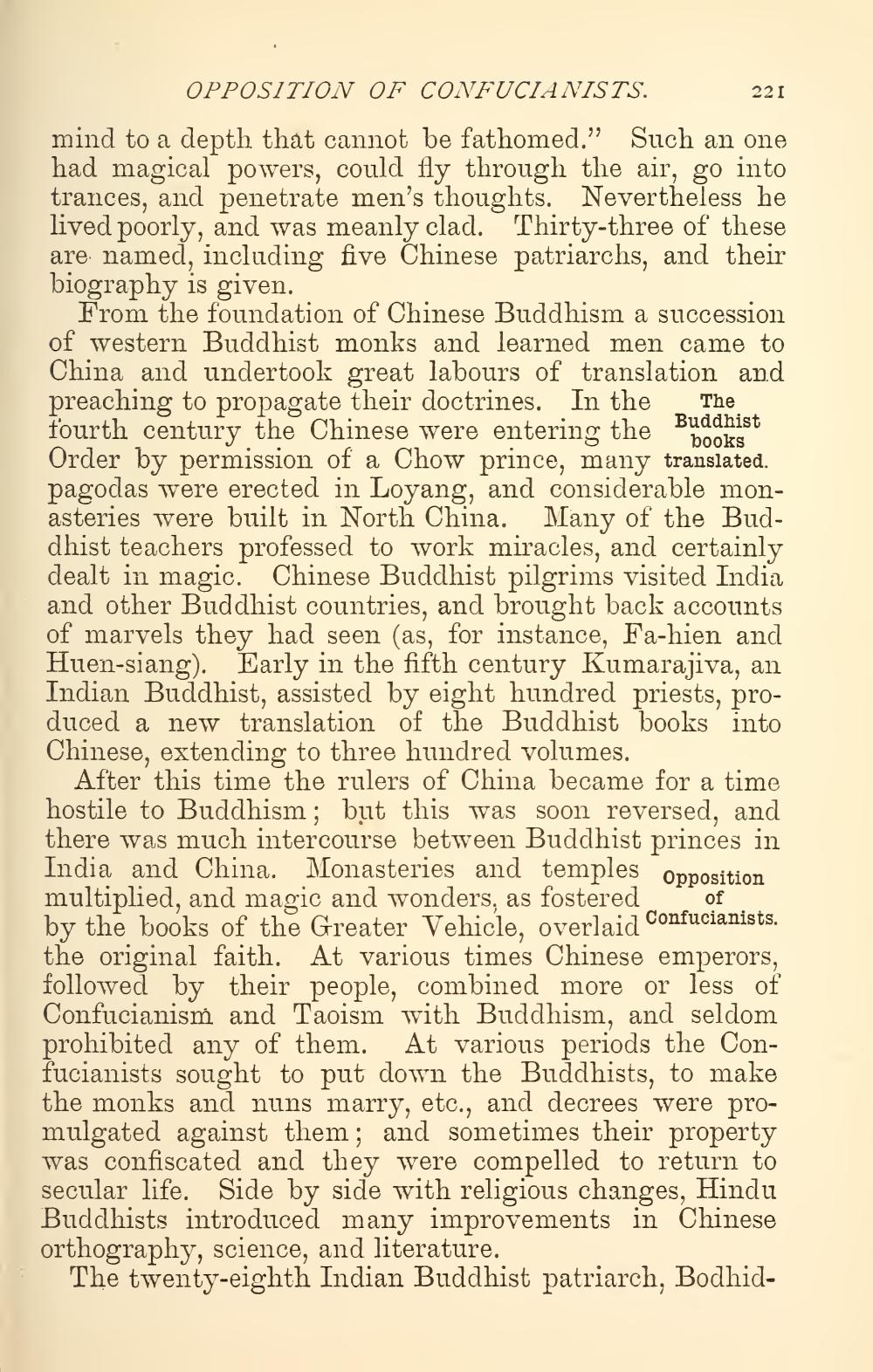________________
221
Buddhist
OPPOSITION OF CONFUCIANISTS. mind to a depth that cannot be fathomed.” Such an one had magical powers, could fly through the air, go into trances, and penetrate men's thoughts. Nevertheless he lived poorly, and was meanly clad. Thirty-three of these are named, including five Chinese patriarchs, and their biography is given.
From the foundation of Chinese Buddhism a succession of western Buddhist monks and learned men came to China and undertook great labours of translation and preaching to propagate their doctrines. In the The fourth century the Chinese were entering the books Order by permission of a Chow prince, many translated. pagodas were erected in Loyang, and considerable monasteries were built in North China. Many of the Buddhist teachers professed to work miracles, and certainly dealt in magic. Chinese Buddhist pilgrims visited India and other Buddhist countries, and brought back accounts of marvels they had seen (as, for instance, Fa-hien and Huen-siang). Early in the fifth century Kumarajiva, an Indian Buddhist, assisted by eight hundred priests, produced a new translation of the Buddhist books into Chinese, extending to three hundred volumes.
After this time the rulers of China became for a time hostile to Buddhism; but this was soon reversed, and there was much intercourse between Buddhist princes in India and China. Monasteries and temples Opposition multiplied, and magic and wonders, as fostered by the books of the Greater Vehicle, overlaid Confucianists. the original faith. At various times Chinese emperors, followed by their people, combined more or less of Confucianism and Taoism with Buddhism, and seldom prohibited any of them. At various periods the Confucianists sought to put down the Buddhists, to make the monks and nuns marry, etc., and decrees were promulgated against them; and sometimes their property was confiscated and they were compelled to return to secular life. Side by side with religious changes, Hindu Buddhists introduced many improvements in Chinese orthography, science, and literature.
The twenty-eighth Indian Buddhist patriarch, Bodhid
of




